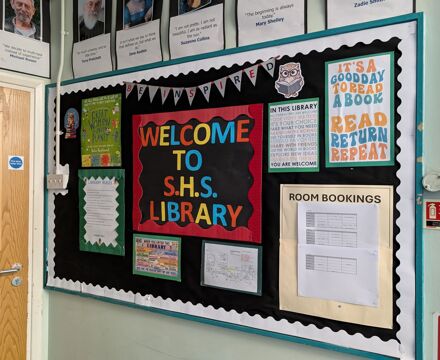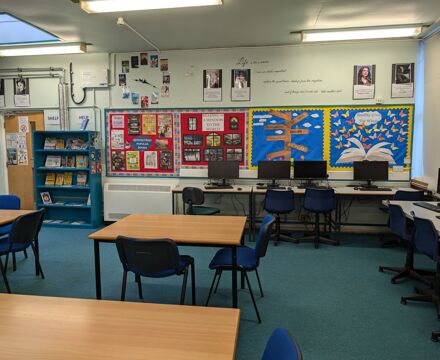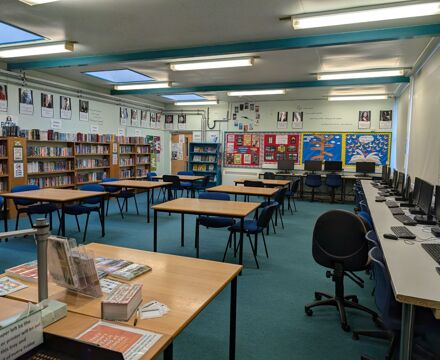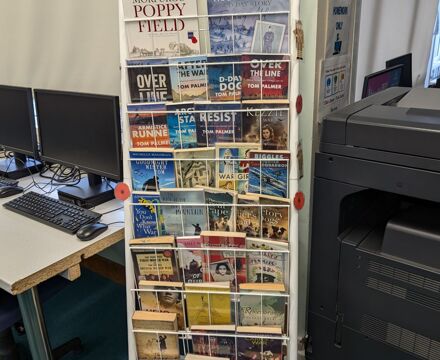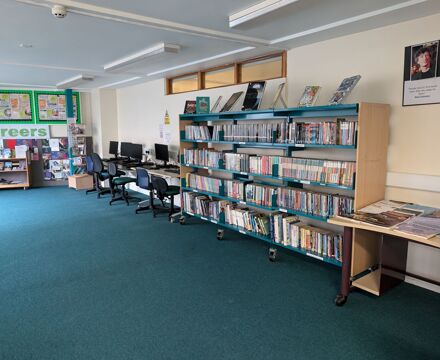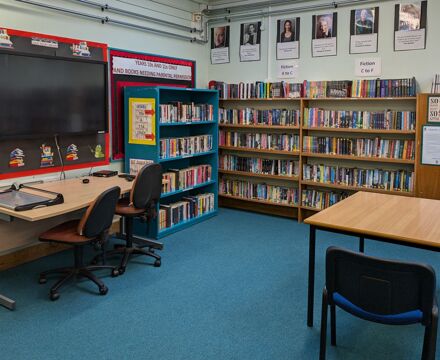- Home
- Curriculum
- Reading at Stradbroke High School
Reading at Stradbroke High School
Our Philosophy
At Stradbroke, we believe that literacy is the foundation of all learning. Strong literacy skills are essential for academic success and personal development. Our reading program is designed to foster a love for literature, enhance comprehension skills and develop critical thinking.
Importance of Literacy
Literacy is more than just the ability to read and write; it is the key to unlocking a world of knowledge and opportunities. Proficient literacy skills enable students to:
·Understand and analyse complex texts: This is crucial for success in all academic subjects.
·Communicate effectively: Both in writing and verbally, which is essential for personal and professional life.
·Think critically: Evaluate information, make informed decisions, and solve problems.
·Engage with the world: Access a wide range of information and participate fully in society.
Curriculum
Our English curriculum includes a diverse selection of books that cater for different age groups. From classic literature to contemporary works, our students are exposed to a wide range of genres and authors.
Every department in the school has a bespoke approach to enhancing the literary diet of the students. For some departments, they use non-fiction articles to educate students about different careers whereas others use them to explore different elements of the curriculum.
Glossaries are used in each subject for each unit of work to allow the students to have ownership of the vocabulary that is being used to illustrate their core knowledge.
Intervention Programs
We use data from reading tests and teacher assessments to diagnose gaps in reading knowledge and provide targeted interventions. Our intervention strategies include:
·Access Reading Tests: Conducted twice a year for Years 7-10.
·NGST (Spelling) Tests: Administered on entry in Year 7.
·KS2 SATS Scores: Used to benchmark and tailor interventions.
·One-to-One and Small Group Sessions: Time-limited interventions with progress tracked and monitored.
·Specialised Programs: Including Beat Dyslexia, Nessy Reading and Spelling, Target Comprehension, and Rapid Reader Programme.
The Reading Lead, SENCO, and English Key Stage 3 Lead meet regularly to evaluate student progress. Identified students in Years 7, 8, and 9 attend small, literacy-focused Enhanced Learning sessions. Our teachers and support staff ensure a consistent approach to literacy development.
Reading Culture
We promote a strong reading culture through various initiatives:
·Register and Read: Weekly sessions during Form Time.
A novel is carefully selected and students listen carefully to the text whilst it is being read aloud.
·DEAR Sessions: Non-fiction reading sessions based on current events.
These non – fiction articles, based around current news stories are read aloud by the form tutors. The group then engages in a discussion based on the ideas within the article.
·Class Readers: Each KS3 English group reads a class reader every lesson.
Students follow the text with their own copies and they are read aloud to; the class teacher models high standards of reading, exploring vocabulary and explaining meaning to the students.
·Library Lessons: Regular library sessions for KS3 English groups.
These allow both independent research but also independent reading and reading aloud to their English teacher.
·Celebration of Reading Events: Including World Book Day and National Poetry Day.
·Books and Biscuits: Each week for those wanting to escape into their book!
·Staff Reading Displays: Staff showcase their current reads in offices and tutor rooms.
·Duke of Edinburgh Award: Paired reading activities.
·Dyslexia-Friendly Reads and Audiobooks: Promoted in the library.
Resources
Our school library is a vibrant hub of activity, stocked with a vast collection of books, e-books, and audiobooks. We also provide access to online reading platforms and resources to support our students’ reading journey. For a general reading list, we suggest looking closely at the “Schools Reading List” website. This is curated by teachers, librarians and publishers. There are book of the month recommendations, competitions and updated reading lists for students in Key Stage 3 and 4.
https://schoolreadinglist.co.uk/category/secondary-ks3-ks4-reading-lists/
Our approach to reading considers the following evidence based publications:
The reading framework (publishing.service.gov.uk)
Improving Literacy in Secondary Schools | EEF (educationendowmentfoundation.org.uk)
10 top tips for parents to support children to read - GOV.UK
Libraries from home | Libraries Connected
Documents
| Page Downloads |
|---|
| Reading 2024 2025 Final |

